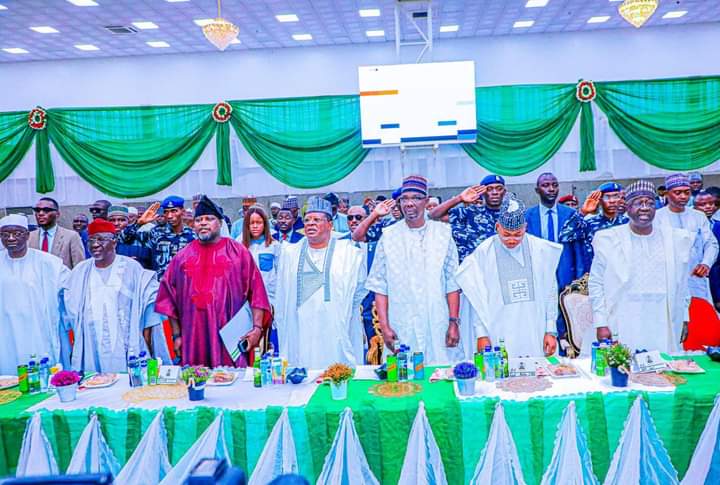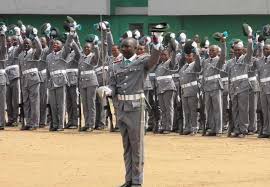By Abel Daniel, Lafia
The Minister of Works, Engineer David Umahi on Saturday, met Governors and stakeholders from Nasarawa, Benue and Kogi States in the North Central region of the country to seek their support for the proposed 477 kilometers Cross River-Ebonyi-Benue-Kogi-Nasarawa-Apo superhighway which is to be constructed by the Federal Government of Nigeria.

Speaking at a stakeholders engagement organised by the Federal Ministry of Works on the alignment of superhighways for the Renewed Hope Legacy Infrastructure Project, in Lafia, the Nasarawa State capital, Umahi explained that the project was beyond road construction, but an investment that would serve as a catalyst that will revive the economy of the country.
The Minister identified the proposed Cross-River-Ebonyi-Benue-Kogi-Nasarawa-Apo superhighway as a legacy project of the present administration which would bring a lot of benefits to all Nigerians, particularly to the residents of the benefiting states.

Omahi further reiterated the federal government’s commitment under the leadership of President Bola Tinubu to ensure the completion of the Lagos-Ondo-Edo-Delta-Bayelsa-Rivers-Akwa Ibom-Cross Rivers, and the Sokoto-Kebbi-Niger-Kwara-Oyo-Ogun-Badagry superhighways.
He said, “There are a lot of benefits because of these three superhighways. I want to assure that this is beyond road construction, but it is an investment. This is because it is a catalyst that is going to revive the entire economy of the country.
“I request that you buy into it and support Mr. President who still has about seven more years to deliver these projects. We believe that with these seven years, these three legacy projects shall be delivered.”
The Minister further disclosed that all the road projects would be reinforced with concrete to enable them last up to 50 years before any maintenance is required.
“Each of these sections are going to be on reinforced concrete. Each of these sections has six lanes. It also has a train track. We are also using solar streetlights.
“The benefits of these three legacy projects cannot be overemphasized. It is going to be done in concrete. Sokoto-Badagry has 53 dams on that section. Any road properly constructed on concrete, for the next 50 years, you will not touch it. Lagos-Calabar has a lot of potentials. In fact, we are aiming at finishing the first section 47.7km by May next year and we will be tolling it immediately,” he explained.
The Minister further informed the Governors and other North Central stakeholders at the meeting that the Federal Executive Council had directed that federal government projects spread across states that have remained uncompleted for a long period of time should be determined and priotized.
On their parts, Governors of the North Central geopolitical zone, as well as critical stakeholders particularly those of Nasarawa, Benue and Kogi States, commended President Bola Tinubu for conceiving the idea of the Renewed Hope Legacy Infrastructure Project.
Speaking for the Governors and other stakeholders, the Chairman of North Central Governors Forum, Abdullahi Sule thanked the federal government for embarking on such iconic projects that had been in the pipeline for decades, while expressing their commitments to give adequate cooperation for the success of the federal superhighway.
Sule said, “Let me sincerely appreciate Mr. President for this iconic project. Iconic in the sense that this is a project that has been in the pipeline before some of us were born. Indeed, today, we are seeing the realities of these road projects.”
While thanking all the stakeholders including the Governors and members of the National Assembly who took their time to be in attendance at the meeting, Governor Sule urged them to ensure that the needed cooperation is given to the Federal Ministry of Works on the construction of the superhighway and other projects in the North Central region.
Our correspondent reports that the CrossRiver-Ebonyi-Benue-Kogi-Nasarawa-Apo superhighway which would be an offshoot of the Lagos-Calabar coastal highway, is expected to cover a total of 477Kilometers among which the affected states in the North Central region would be 284Kilometers.
On the proposed new road, Nasarawa State has 95Kilometers; Kogi State, 111Km; Benue State, 66Km; while the Federal Capital Territory, Abuja, has 12Km.




